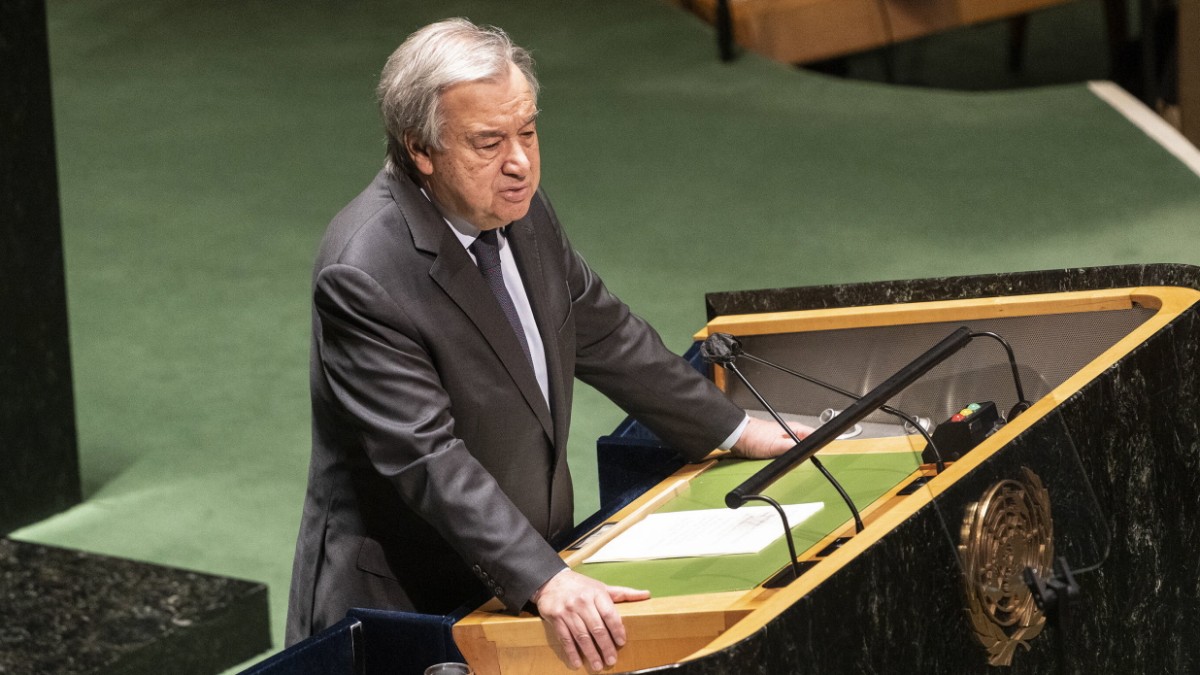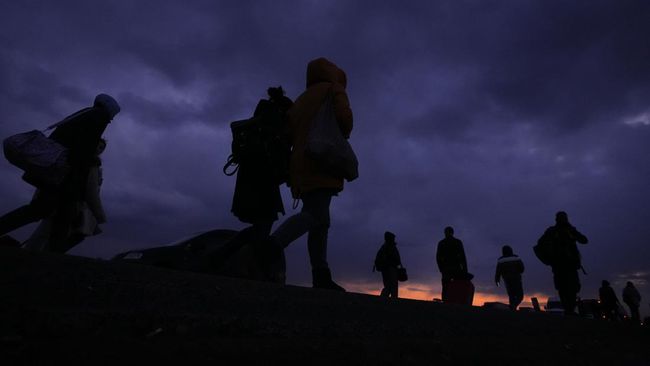Most diplomats at the United Nations in New York continue to strive for direct but largely moderate language during the ongoing debates about Russia’s war of aggression against Ukraine. But not the Ukrainian Ambassador Sergiy Kyslytsya. He has made some memorable appearances in recent days, emotionally hinting at the fate of his home country. He spoke at the UN General Assembly on Monday, and it was his sharpest, angriest, and certainly most undiplomatic speech yet.
He called the fact that Russian President Vladimir Putin had his nuclear arsenal on standby “madness.” He said “madness”; Kyslytsya mostly spoke English, probably also to emphasize Ukraine’s connection to the West. Then he said, referring to Putin: “If he wants to kill himself, he doesn’t have to use his arsenal of nuclear weapons. He has to do what the guy in Berlin did in a bunker in 1945.”
By that he meant Adolf Hitler, who killed himself at the end of World War II. In normal times, that would have been received unanimously in New York as a derailment. In these times of war, Kyslytsya seemed to meet with cautious understanding with this statement, which was extreme by UN standards.
During his speech at the UN General Assembly, Ukrainian Ambassador Sergiy Kyslytsya shows a screenshot of a letter that a Russian soldier is said to have written to his mother before he died.
(Photo: Carlo Allegri / Reuters)
—
The 193 member states debated the situation in Ukraine throughout Monday, and the Security Council also met from the afternoon. Russia faced a rare front of rejection. The plan is for the General Assembly to pass a resolution condemning the Russian actions by the majority of the world. A two-thirds majority is required for adoption.
Judging by the dozens of speeches on Monday, this will be achieved. However, since more than 100 states want to comment on the situation, it was initially not clear whether the vote would take place on Tuesday or later in the week. French UN ambassador Nicolas de Rivière said: “No one can look the other way. Abstention is not an option.” For large countries like China or India, however, abstention has been an option so far. Russia is not entirely without allies in New York.
Baerbock will also address the General Assembly
Very late on Monday evening it was announced that German Foreign Minister Annalena Baerbock would also be traveling to New York. She said she would speak at the General Assembly on Tuesday afternoon, local time. The fact that Baerbock arrived at such short notice was taken by observers in New York as a sign that Germany is actually determined to show more of its presence on the world stage.
Baerbock’s Russian counterpart, Sergei Lavrov, also wanted to travel to New York to defend Russia’s position. However, he canceled the trip because of the extensive blocking of European airspace for Russian aircraft. It was up to the Russian ambassador to the UN, Wassili Nebensja, to speak for his country in the General Assembly.
He stayed true to his line of the past few days. Reports of a Russian invasion are “distorted”. Recently he had said several times that there could be no talk of war. On Monday he said: “The Russian army does not pose a threat to civilians in Ukraine. It does not bomb areas where civilians live.”
In doing so, he directly contradicted the statements made by UN Secretary-General António Guterres, who said at the start of the debates on Monday: “Although the Russian airstrikes are reportedly mostly aimed at military targets in Ukraine, we have credible evidence that residential buildings, civilian Infrastructure and non-military targets were attacked, causing severe damage.”
Guterres was unusually clear for his standards, as has often been the case in the past few days. Not as explicit as Ukraine’s Ambassador Kyslytsya, but he said Russia’s nuclear threat was a “startling development”. He said there must be not only an immediate halt to the fighting, but also a way to find a diplomatic solution. In doing so, he expressed what many UN diplomats in New York are said to be thinking: Putin must be quickly shown a face-saving way out of this disaster.
So far, the United States had deliberately reacted with restraint to the nuclear threat. When US President Joe Biden was asked at a festive event in the White House on Monday evening whether a nuclear war was imminent, he replied curtly: “No!”
Around the same time, his government announced that it would expel 12 Russian UN diplomats. Richard Mills, US Deputy Ambassador to the United Nations, said: “These diplomats that we asked to leave the United States engaged in activities that were inconsistent with their responsibilities and duties as diplomats.” What he was saying in fact: The US considers these twelve emissaries from Russia to be spies.
The Russian ambassador to the UN, Vasily Nebensya, addressed the expulsion at the beginning of the UN Security Council session later on Monday. He called her “hostile”. Russia, he said, will find an appropriate response.
–


